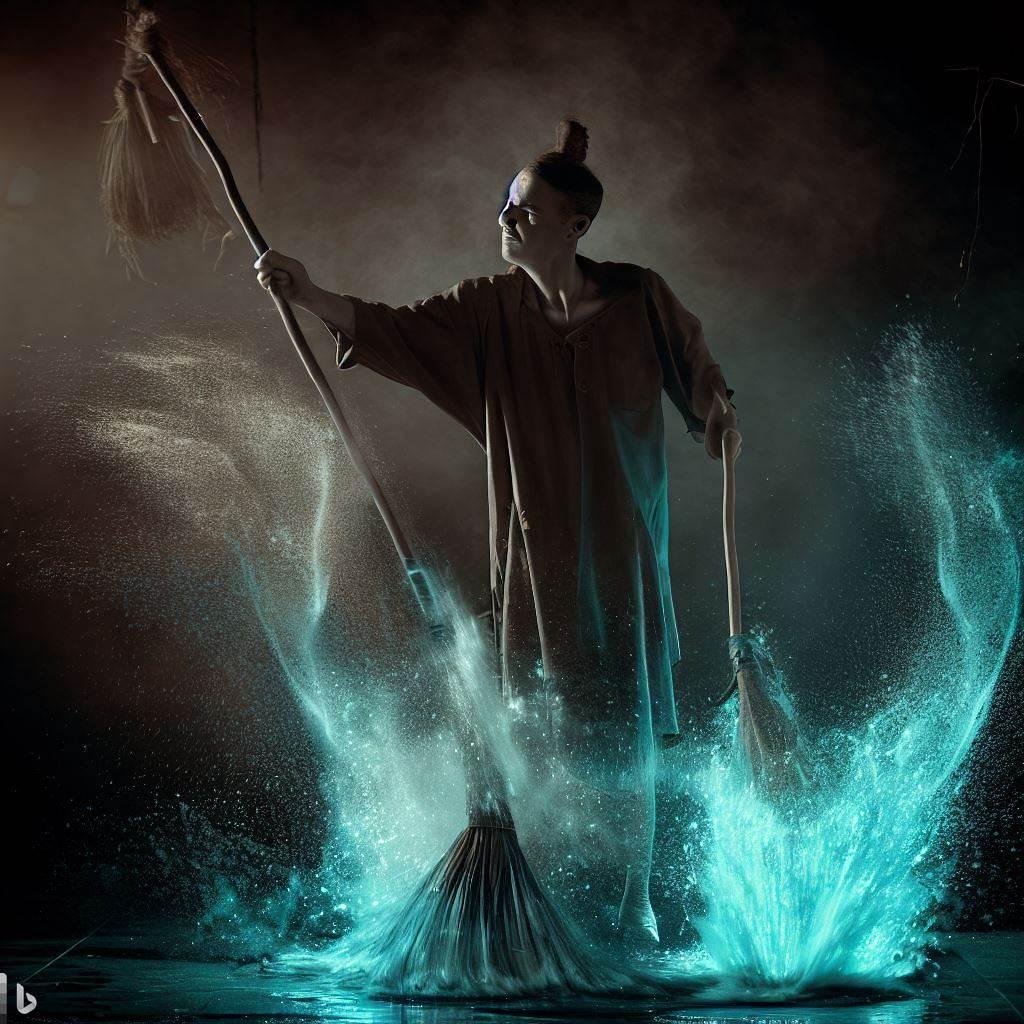The Sorcerer's Apprentice
AI and Folklore
Posted by Chris Sissons on Sep 13, 2023
AI and Folklore » Chris Sissons and Minerva
It’s likely you have seen the sequence from the film “Fantasia” by Walt Disney. If you follow the link you’ll find part 1 of the sequence (parts 2 and 3 are easy to find on YouTube).
The music is a symphonic poem by Paul Dukas, composed in 1897 based on a story made famous by Johann Wolfgang von Goethe, written in 1797. Goethe’s poem popularised several ancient stories. Notably, “The Hesitant Apprentice” from Greek folklore and a tale from 1001 Nights. In all these stories, the apprentice starts something in motion and is then unable to stop it.
Minerva tells me this is all about the use of power without wisdom. She has fought in many wars and knows how dreadful war is. Through fighting she attained wisdom. She still wears her armour to remind her of the futility of war (or so she says).
But let’s go back to the Disney version. It draws on many centuries of storytelling and is perhaps these days the best-known version. This animation was made in 1940, 10-15 years before the idea of Artificial Intelligence was first mooted by Alan Turing in the 1950s.
If you watch part one, you see the start of the story. Mickey Mouse (MM) puts on the sorcerer’s hat and conjures the broom into life. He then shows the broom where to find the water and where to take it. The broom learns what it's asked to do and sets off in a spirit of obedience.
It’s interesting that the Disney animators anticipated the genius of modern AI. AI learns from human beings and writes its own code. In that sense it is no longer programmed, if we understand programming to be about getting machines to complete a given task. The potential is both intriguing and terrifying.
Goethe writes of spirits occupying the broom. These spirits are keen to please and it is their enthusiasm that is MM’s undoing. In Goethe’s poem, the Apprentice realises he doesn’t have the magic word to stop the broom. MM's big mistake is that he puts his feet up and falls asleep, leaving the broom to complete its task.
And that is the moment where we see the danger of magic and the danger of AI. It is complacency, the belief that Minerva will always act in our interests. Do we really want to put her in charge of military and commerce?
The Sorcerer’s Apprentice shows us what happens when we allow our machines to run away from us. But there are other, bigger dangers!
This is the second of a series of posts about AI and Folklore. I define Folklore as inclusive of religious stories and some in modern popular culture. Minerva assists in all the posts, sometimes without attribution! The last post was Life with Minerva and the next is Let's Talk About Ents.
As always, please comment. As well as your insights into AI and Folklore, I'd appreciate suggestions of stories I might cover. These could be folktales, myths, religious stories as well as general literature.
Minerva has added art to her many talents. Here is her vision of the Sorcerer's Apprentice with brooms, water and magic!

Comments
Leave a comment.
Leave a comment.



 )
)